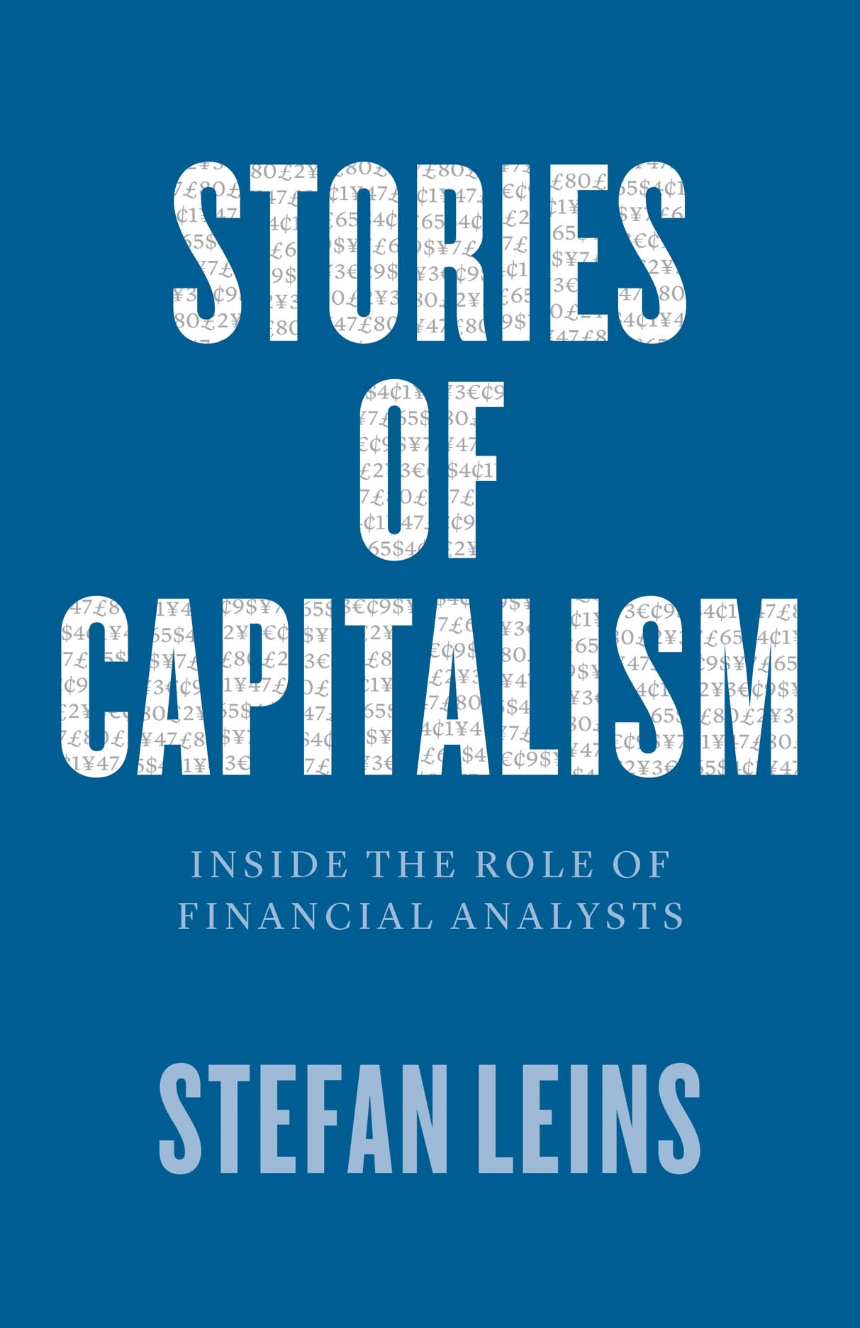Stories of Capitalism
Inside the Role of Financial Analysts
Publication supported by the Bevington Fund
The financial crisis and the recession that followed caught many people off guard, including experts in the financial sector whose jobs involve predicting market fluctuations. Financial analysis offices in most international banks are supposed to forecast the rise or fall of stock prices, the success or failure of investment products, and even the growth or decline of entire national economies. And yet their predictions are heavily disputed. How do they make their forecasts—and do those forecasts have any actual value?
Building on recent developments in the social studies of finance, Stories of Capitalism provides the first ethnography of financial analysis. Drawing on two years of fieldwork in a Swiss bank, Stefan Leins argues that financial analysts construct stories of possible economic futures, presenting them as coherent and grounded in expert research and analysis. In so doing, they establish a role for themselves—not necessarily by laying bare empirically verifiable trends but rather by presenting the market as something that makes sense and is worth investing in. Stories of Capitalism is a nuanced look at how banks continue to boost investment—even in unstable markets—and a rare insider’s look into the often opaque financial practices that shape the global economy.
Building on recent developments in the social studies of finance, Stories of Capitalism provides the first ethnography of financial analysis. Drawing on two years of fieldwork in a Swiss bank, Stefan Leins argues that financial analysts construct stories of possible economic futures, presenting them as coherent and grounded in expert research and analysis. In so doing, they establish a role for themselves—not necessarily by laying bare empirically verifiable trends but rather by presenting the market as something that makes sense and is worth investing in. Stories of Capitalism is a nuanced look at how banks continue to boost investment—even in unstable markets—and a rare insider’s look into the often opaque financial practices that shape the global economy.
An open access version of this book is available.
224 pages | 5 line drawings, 5 tables | 5 1/2 x 8 1/2 | © 2018
Anthropology: Cultural and Social Anthropology
Economics and Business: Economics--Money and Banking
Reviews
Table of Contents
Acknowledgments
1 Meeting the Predictors
2 The Problem with Forecasting in Economic Theory
3 Inside Swiss Banking
4 Among Financial Analysts
5 Intrinsic Value, Market Value, and the Search for Information
6 The Construction of an Investment Narrative
7 The Politics of Circulating Narratives
8 Analysts as Animators
9 Why the Economy Needs Narratives
Methodological Appendix
Notes
References
Index
1 Meeting the Predictors
2 The Problem with Forecasting in Economic Theory
3 Inside Swiss Banking
4 Among Financial Analysts
5 Intrinsic Value, Market Value, and the Search for Information
6 The Construction of an Investment Narrative
7 The Politics of Circulating Narratives
8 Analysts as Animators
9 Why the Economy Needs Narratives
Methodological Appendix
Notes
References
Index
